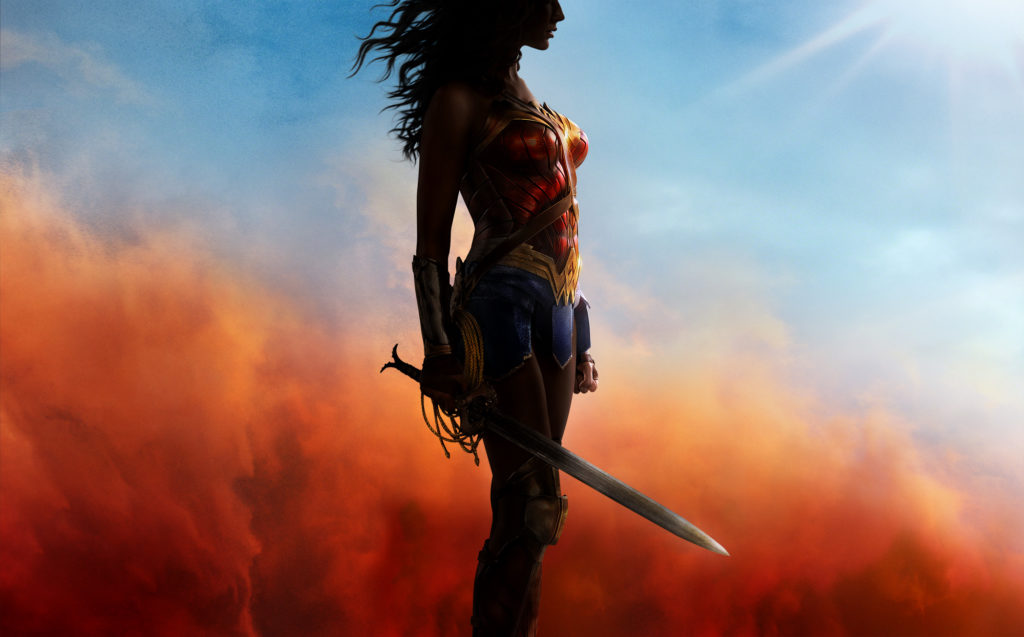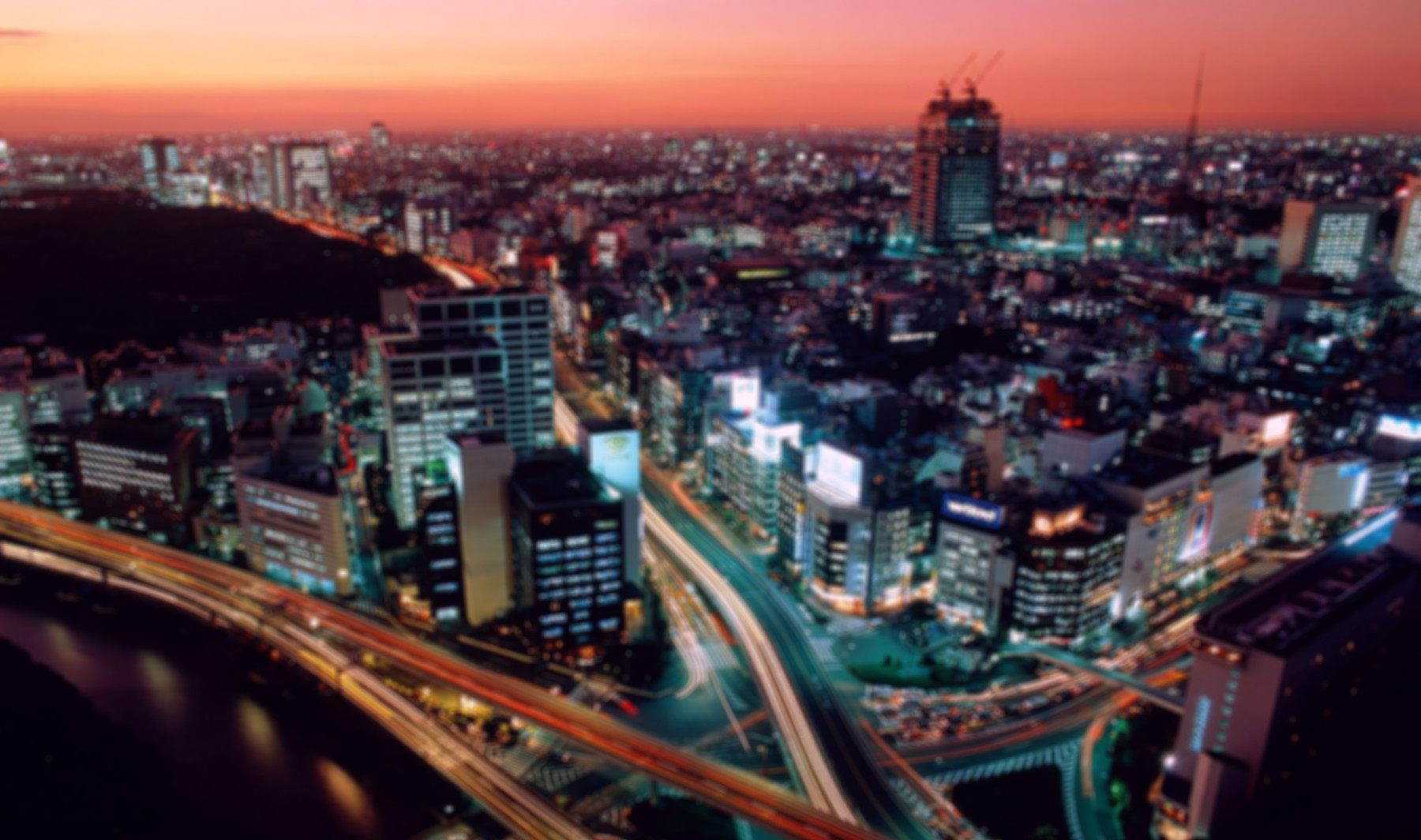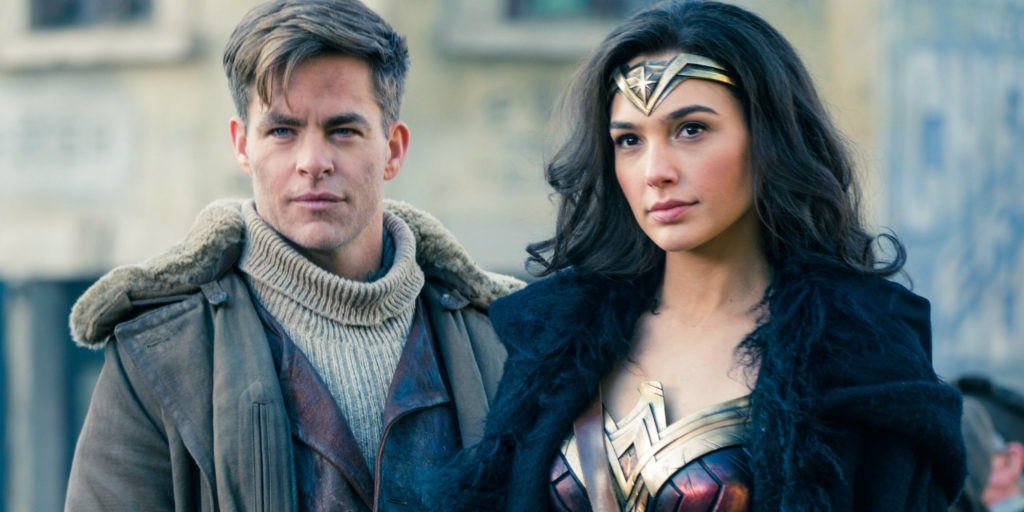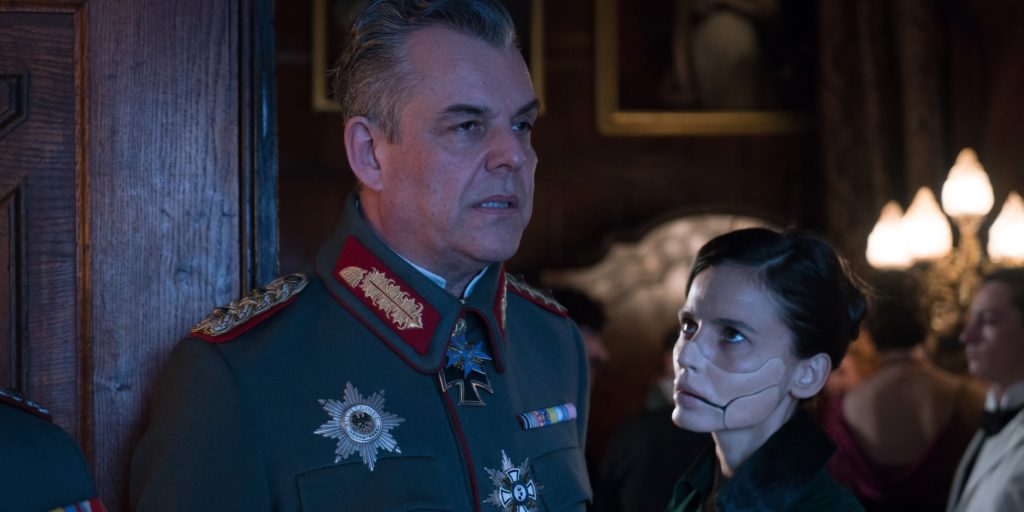 Despite some flaws, Wonder Woman soars in a way audiences haven’t seen in years, giving women and fans something to cheer loudly for.
Despite some flaws, Wonder Woman soars in a way audiences haven’t seen in years, giving women and fans something to cheer loudly for.
Superhero fans everywhere may remember the subtle, yet iconic scene in 1978’s Superman the Movie when Lois Lane, after falling from a crashed helicopter, is saved from certain death by the Man of Steel himself, and after being assured that he has her, she utters the now-classic line, “You’ve got me? Who’s got you?”
In that simple moment, audiences truly believed a man could fly, and it’s with that same sense of pun-intended wonder that Wonder Woman, the long-awaited vehicle for DC Comics’ Star-Spangled heroine who first graced comic book pages in 1941, soars with both grace and importance, giving not just women, but all fans of the genre something and someone to truly cheer for.
Directed by Patty Jenkins (Monster), Wonder Woman may not be a perfect film, but it is vital in a couple important areas: first, for the first time since Christopher Reeve put on the blue and red tights almost 40 years ago, we have a superhero icon who isn’t driven by angst. Like the earlier Superman, Wonder Woman believes she has a duty to help, and does so with a hopeful earnestness that sets her miles apart from her brooding counterparts.
Gal Gadot may be easy on the eyes, but don’t let that be the thing that defines why she seems born for part of Amazonian power princess. Unlike her debut in the funereal Batman v Superman: Dawn of Justice, where she’s little more than a hanger for fashionable dresses and a steely glare, she is allowed to become a fully-realized character, one whose origin story not only informs her world-weary future, but also reminds viewers why it is we love superheroes and their adventures in the first place.
This leads to the second important area of the film’s vitality, and this one is for women everywhere: in an early scene, we see a young Diana mimicking the moves of the adult Amazonian warriors, and it’s a moment that transcends what’s on screen. It is a message that speaks right to women, giving them a nod that yes, not only can you be a hero, you should be, as much as any man.
Wonder Woman doesn’t exist as a feminist paean meant to put men in their place, but rather to say, “we’re here too, and we can do the job men can without all of the self-important moping. Essentially, we’re the same.”
But let’s not make it all about Wonder Woman herself, even if she is the brightest point in the film.
Chris Pine continues to establish himself as an affable leading man of surprising depth in his role as WWI spy Steve Trevor, who finds himself being saved by Diana as his plane sinks off the coast of her home of Themyscira. While there is some tongue-in-cheek trope bending, Pine is allowed to be both man-in-distress and hero in his own right, given a parallel story arc that is every bit as meaningful as Wonder Woman’s, if not a bit subtler.
Said Taghmaoui and Ewen Bremner show up as both comic relief and a somber reminder of the horrors of war, and while both actors are always welcome additions, their stories, along with that of Eugene Brave Rock’s Chief feel more like window dressing, and all-too reminiscent of the multicultural Howling Commandos featured in Marvel Studios’ Captain America: The First Avenger.
To be sure, there’s more than a couple parallels between the aforementioned film and Wonder Woman, but as much as the film may crib from the Marvel hero, so much about Wonder Woman feels fresher that any comparisons fail to matter when measured against the whole.
But as much as we are here to celebrate Wonder Woman’s coming out party, the film does not come without considerable flaws.
While everything is right about Gadot and Pine, the film is far less wonderful when it comes to the dated, and often distracting CGI that takes some of its worst notes from Zack Snyder’s constant slo-mo action set pieces, making many scenes feel more artificial than they should, especially when juxtaposed against the WWI setting.
Also faring poorly are the villains of the film, including a criminally misused Danny Huston as red herring German warmonger General Erich Ludendorff who is given little more to do than scowl and be the film’s unnecessary sleight of hand, and Elena Anaya who as his cohort Doctor Poison, is given even less. They’re in the film as villains because I suppose there has to be one, but their presence does nothing for the film itself.
David Thewlis’ turn as Ares also feels little more than back-end exposition in a part of the film where there should just be action. Thewlis is usually a joy to watch, but it’s hard not to seem him as woefully miscast as Ares, the God of War.
Wonder Woman, as a film, feels like it could’ve used another year of development, time to smooth the rougher visuals and fully realize a set of villains, but as a statement, a movement, it couldn’t have come at a better time, and when all is said and done is a huge win for both women and fans of superhero films everywhere.
There’s great pleasure in the knowledge that finally, we have not only a true female superhero on screens, but a true and honest hero that is a welcome antidote to the morose Logans and the insane Deadpools that invade theaters, causing many to run sour on the superhero genre as a whole.
It’s here that Wonder Woman performs its greatest feat: Making Superheroes Wonderful Again.
Hashim R. Hathaway (Shimbo) is the host of the Never Daunted Radio Network, and proud father to NeverDaunted.Net. You can reach him on Twitter @NeverDauntedNet


